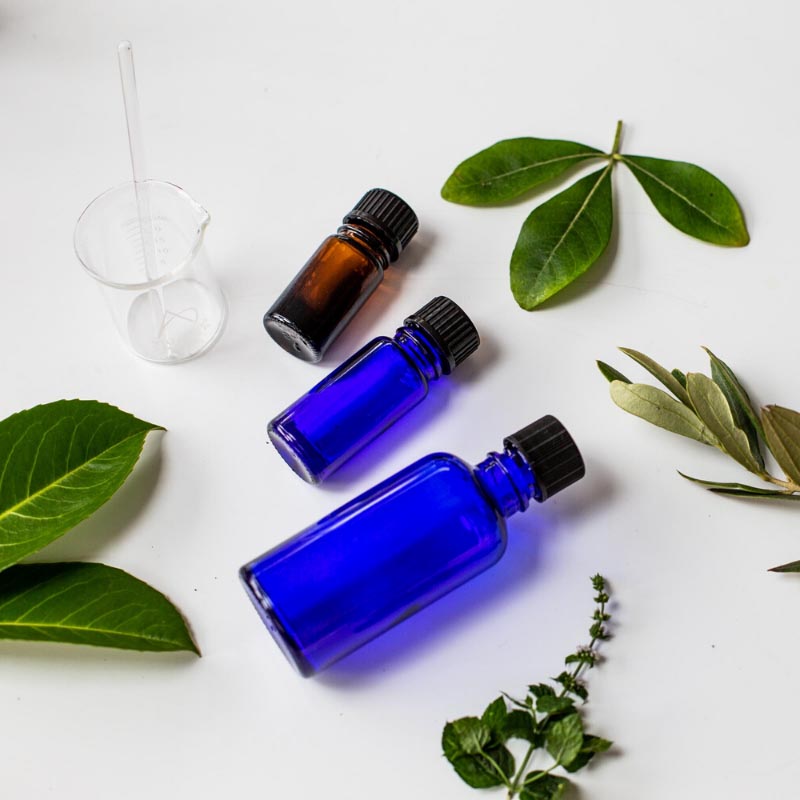
01 Mar How to Safely Use Essential Oils
What today is called ‘aromatherapy’ has indeed existed for centuries. The invention of the process of distilling the essence of certain potent herbs and plants, goes back to ancient India, Egypt, Persia, Greece, and Rome.
Human beings have always relied on herbs and plants for various purposes ranging from nutritional, medicinal, as well as cosmetic. Today they are used extensively in the beauty and wellness industries.
Essential oils are also becoming more and more popular with individuals who wish to use this gift of nature creatively in personalized ways for a variety of purposes ranging from relaxation and lowering of stress, to treatment of skin and hair and other related infections or diseases.
However, essential oils are potent and need to be handled with care so that they don’t adversely affect users.
There are roughly 90 essential oils that have their unique aromas and properties available. They are used in two primary ways: inhalation and topical application. While certain essential oils are ingestible, remember that mostly essential oils are poisonous and hence ingesting them must be done under professional supervision.
We’d like to draw your attention to some crucial pointers that must be kept in mind when using essential oils when used for inhalation and topical application to ensure a safe and beneficial experience.
Always dilute essential oils before:
If there was just one rule to remember when using essential oils, it would be this. Nearly all essential oils (unless very clearly specified) require dilution to render them safe for topical use. Coconut oil, jojoba oil, and olive oil are a few popular ‘carrier’ oils which are used to dilute essential oils. A good thumb rule is to use one drop of essential oil per teaspoon of carrier oil. When using in a diffuser, follow the instructions provided with the diffuser and dilute the oil accordingly. (Avoid adding essential oils to bath water and then stepping into it, as oil and water do not mix and the oil will continue to float isolated.)
Conduct a patch test to check for allergic reactions:
When it comes to essential oils, not only do individuals have their own preferences, different people also respond or react to the different oils, differently. It is always a good idea to do a patch test by applying a few drops of diluted essential oil to a small patch of your forearm that is cleaned with soap and water. Observe how your skin feels and reacts for around 12-24 hours to decide whether or not the essential oil is a good match for you. In case your skin starts to become itchy or swollen, wash immediately with soap and warm water. Look out for other symptoms such as breathing trouble as well.
Use a diffuser in a well-ventilated area:
It is important that the space in which you use a diffuser is well ventilated. In any case, ensure you use the diffuser intermittently, and turn it off after 30-40 minutes and take a break before turning it back on.
Mind where you use essential oils and on whom:
While you can feel free to use essential oils diluted in carrier oils or combined with lotions, creams, and shampoos, ensure you stick to using them on your arms, legs, and face. In general, essential oils must be used topically with caution and not in or around the mucus membranes, the nose, mouth, eyes, genitalia, or broken skin. It is also important to do adequate research before using essential oils on dogs and cats, as they may have unique allergies and reactions to them.
Avoid using expired oils:
Oils have expiry dates too and must be taken seriously. Don’t feel guilty to toss them out if you think the oil looks, smells, or feels strange. Any of these signs indicate spoilage.
Consider age as an important factor:
Many medical supervisors advise against using essential oils for infants and younger children, up to the age of 7. This is because most oils contain a chemical compound called methyl salicylate which can be harmful to young children and even the elderly. Avoid using essential oils with these two age groups, unless prescribed by a medical practitioner.
Consider medical conditions:
We must always consider the medical conditions or medication being consumed when choosing to use essential oils. Pregnant women, women in labour, and lactating mothers are usually advised to stop usage temporarily, as there is some evidence to suggest interference of oils with the growth of the fetus. Also avoid self-prescribing essential oils for serious medical conditions such as asthma. Always consult a medical practitioner before you incorporate essential oils into your healthcare regime.
Store them responsibly:
Ensure your precious essential oils are out of reach for children and pets as there could easily be accidents which could be very unfortunate. Also ensure that essential oils are far away from any source of fire as they are inflammable.
As they say, poison and medicine are essentially the same thing. The only difference is in the dosage. These words hold true for essential oil usage as well.
Due research and/or consultation with an aroma therapist is highly recommended. We hope that you will remember that essential oils are powerful potions that we extract from nature and must not be used casually.



No Comments